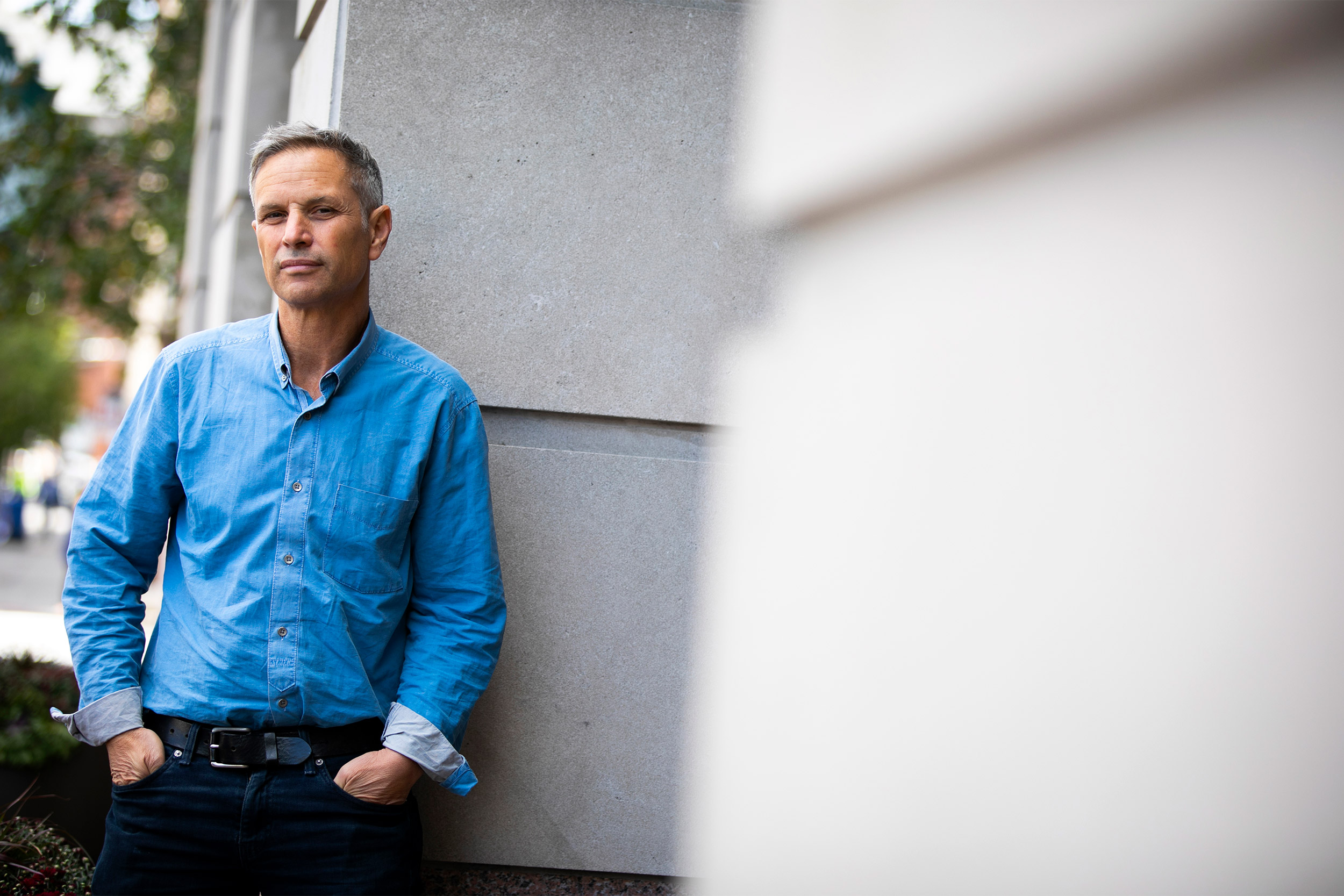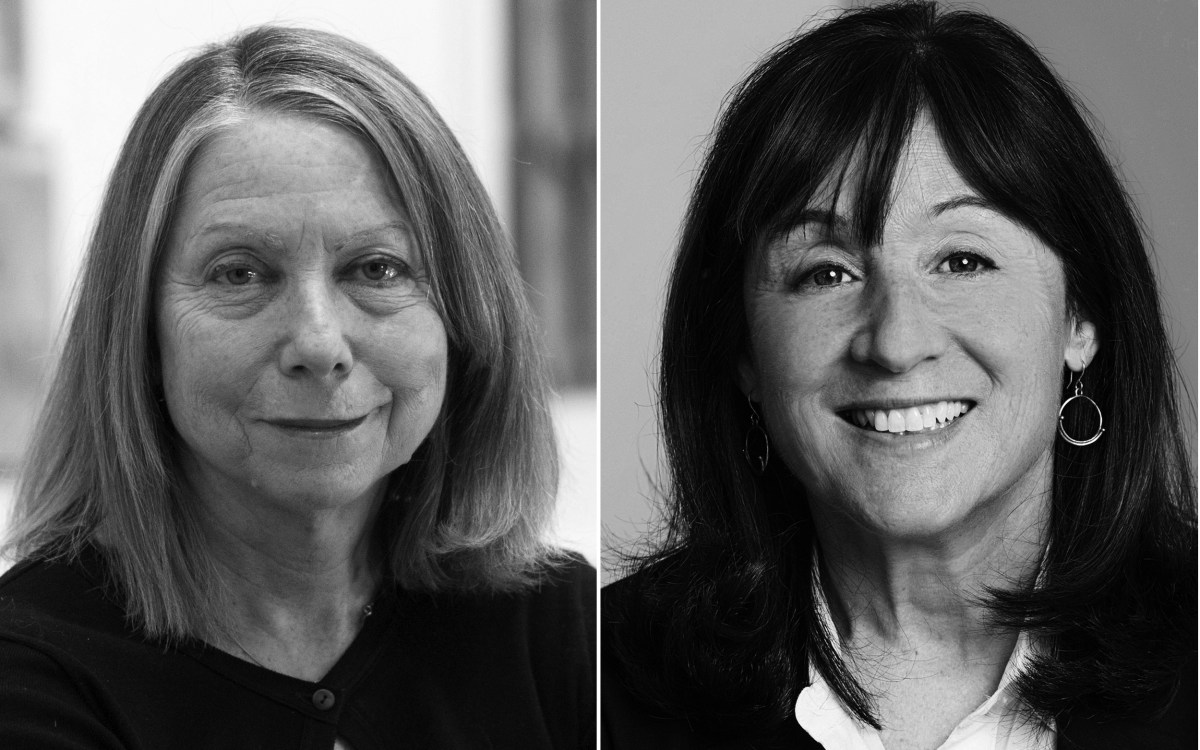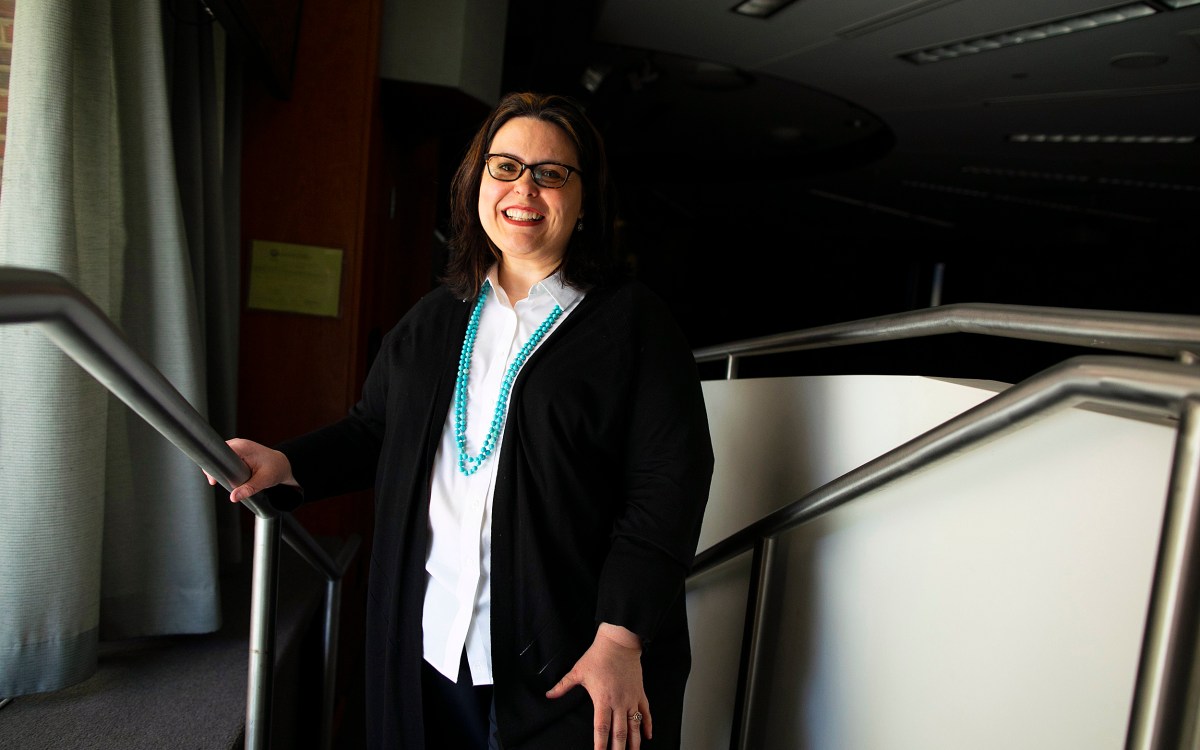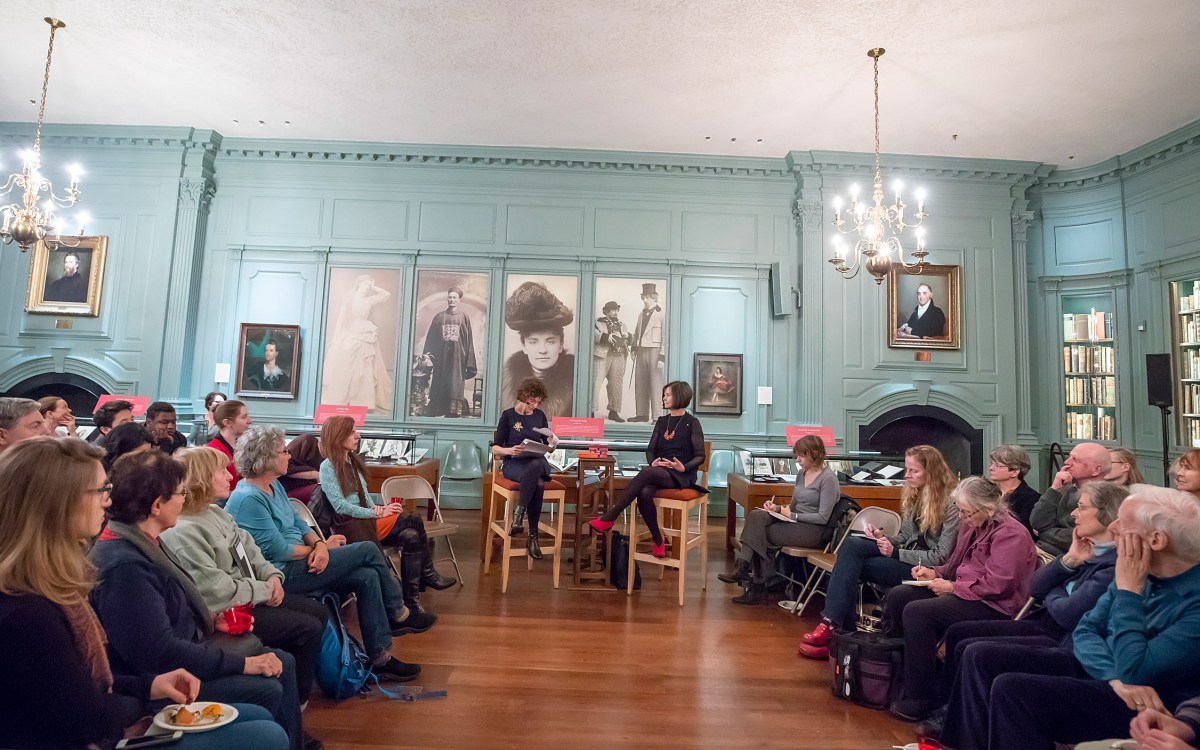
Award-winning editor Adam Moss is a fall fellow at the Shorenstein Center for Media, Politics and Public Policy at Harvard Kennedy School.
Stephanie Mitchell/Harvard Staff Photographer
A Platonic ideal of a news website
Legendary editor Adam Moss leads a workshop with one assignment: Imagine a financially viable political publication with perfect coverage
With his ears sharply attuned to great storytelling and an embrace of digital innovation, award-winning editor Adam Moss blazed a distinctive path through the reeling newspaper and magazine industries. After stints at Esquire and Rolling Stone, Moss made his mark at The New York Times, where he served in several editorial roles, most notably overseeing a bold rejuvenation of The Times Magazine. In 2004, he joined New York magazine as editor-in-chief; stepping down in March after 15 years at the helm.
As a fall fellow at the Shorenstein Center for Media, Politics and Public Policy at Harvard Kennedy School, Moss is leading an eight-week workshop for students to consider the current business realities of political journalism and develop what he calls a “Platonic ideal” of a financially viable news site that delivers what readers want and need from the coverage. The Gazette spoke to him in a free hour.
Q&A
Adam Moss
GAZETTE: In an interview with NPR, you said you thought it was both “an amazing time” for journalism but also as “horrifying and riveting [a] period” as you’ve ever experienced. And yet, you described yourself as “highly optimistic.” What did you mean?
moss: Technology has certainly unsettled lots of things. It’s unsettled politics, and it’s unsettled journalism. What I mean by it being exciting for a journalist is that the status quo is being challenged in all sorts of ways. Personally, I think some of it’s good; some of it’s bad. But there’s a greater need for journalism, as both a chronicler and an explainer and, in some ways, an agent for change. That more people are engaged with the content that we make than ever before because of the distribution qualities and the feedback qualities of journalism is really interesting and exciting. And I think there are more forums that journalism has at its disposal to tell that story, through audio, through video, and through digital distribution. So that’s why I feel excited by it: It reaches more people; it matters more.
GAZETTE: How is political journalism serving the American public these days?
moss: At its best, it exposes the truths and falsehoods that are happening. There are also a lot of negative attributes, God knows. But you have an environment in which there are a lot of false narratives, false would-be facts, and journalism’s role as a corrector is very important. Also, I think investigative journalism — it’s the heyday of it, really. And there was a long, long period where it was lazier. So in all those ways, I think there’s a lot of good happening now. The big engine of fact-check journalism has been vigorous in the last three years, and that is good; I think investigation is good; I think a lot of the ways in which the audience, the citizenry engages with journalism is good. Some of it is bad. You see places like The New York Times and The Washington Post, two basic examples, which are now truly performing their function as not just an entertainment vehicle but as part of the system. Quite a bit of journalism is still about entertainment and has entertainment values, and it tries to reach as many people and titillate them as possible. I understand the reasons for that; I’ve been part of that. A classic example is horse-race journalism: People really like horse-race journalism. Does it have a positive effect? Yes and no. I think that flourishes at a time when many for-profit organizations need to engage as many people as possible and [it] engages them according to what they think are, and what the metrics show are, the things that most interest or engage or entertain or titillate them. I don’t want to call it good or bad, but that has its effects.
GAZETTE: Tell me about what you hope to accomplish during the workshop?
moss: I’m not here as a media critic. The workshop is meant to engage a bunch of members of this community, mostly students, in trying to understand and draw out from them what are the problems they identify and why those things happen. Inevitably, the conversation will be about entertainment aspects of journalism, horse race, ideology, laziness on the part of reporters, corporate ownership — there’s a fairly conventional list that people have identified before. The point is to help people to understand why things are the way they are and then to quickly move to trying to create a Platonic solution to that.
The purpose is not necessarily to reinvent journalism. I don’t have any delusions that that’s what we’re going to do. The point of it is to help people understand the way journalism is made and possibly come up with solutions that might have some use outside the workshop — but maybe not. We will be trying to sort through other ways to engage audience. Inevitably, a lot of what the conversation will end up being about is: “This is what we think ought to be.” But really, people’s appetites are otherwise, and how do you bridge the gap between people’s appetites and what you think are the purer functions of journalism, and are there ways to cater to people’s appetites in ways that are constructive? So people will be trying to invent those things.
GAZETTE: Journalists and publications are generally the rightful target of criticism, but do you find there can sometimes be a chasm between what readers say they want and what they actually read?
moss: Absolutely. A perfect example is a lot of high-minded people, including myself, are impressed with the fact that Elizabeth Warren has come up with plans to solve some big problems, and yet I don’t know a single person who’s read a single one of Elizabeth Warren’s proposals. So they like the idea of it, but they’re not actually interested in studying the policy and evaluating the policy — a few people are. That’s interesting to me.
GAZETTE: What do you hope students will bring to and take away from this effort? Do they understand the perverse incentives of the industry?
moss: It’s really a workshop that’s, at least in large measure, investigating the perverse incentives. Exactly that question. I want people to get more sophisticated, and understanding those incentives is necessary before you can start to propose constructive solutions. The more interesting questions — how does journalism happen and what are its effects? Done not in a broad-sweep way, but hopefully a way that brings to bear some real-world experience of journalists. A lot of what we’re doing in this workshop is having journalists themselves participate and explain why they themselves do the things that they do.
In a lot of ways, this project comes out of a project I did in New York a couple of years ago, which was a cover story called “The Case Against the Media by the Media” where we asked close to 50 journalists what it was that kept them up at night. They gave some very considered answers. And they were quite critical of their own profession and in some cases, of their own behavior. I found that piece quite exciting and the project quite exciting to make. So this builds on that.
One of the big factors of the last few years is that outrage has been a huge driver of people’s interest. People like to tell people things that they already think and get them all riled up. That’s become a big part of the way that journalism works and that obviously comes out of the way social media works. It rewards validating views people have going into it and it excites and energizes them as readers and participants. It’s a whole new incentive to play to those people that lots of journalists seek out. They become incentives for dictating some of the coverage that happens.
GAZETTE: What is next for you professionally? Will you stay in the field?
moss: I don’t know yet. I keep waiting every morning to have lightning strike me. I really don’t know, and I felt very much I needed to get out of the 9 to 11 — it’s no longer 9 to 5 — gerbil wheel in order to figure it out. And so it’s now been six months, and I’m still figuring it out.
GAZETTE: You’re among the last breed of magazine editors known as an auteur of sorts, whose creative personality and taste and sensibilities deeply shaped the publication.
moss: Some of it’s for great reasons. Technology has completely changed the practice of journalism, and it means that you as the editor don’t have as much of a role in what people get from the publication. The technology creates a mechanism by which the readers themselves, in effect, vote on what the publication ought to be. That’s not to say that editors don’t matter. I think they do. But there is this whole other feedback loop that’s very powerful and probably means that there will be less of the auteur model of the editor in the future.
GAZETTE: In an atomized world, don’t you think you lose the ability to make a bigger statement if people are only reading individual stories or listening to singles, not albums?
moss: Yeah, I do. But there’s a lot of good that comes from the readers participating, too. So there’s good and bad. It’s all about tradeoffs. Every part about this project is about tradeoffs.
This interview has been edited for clarity and length.







